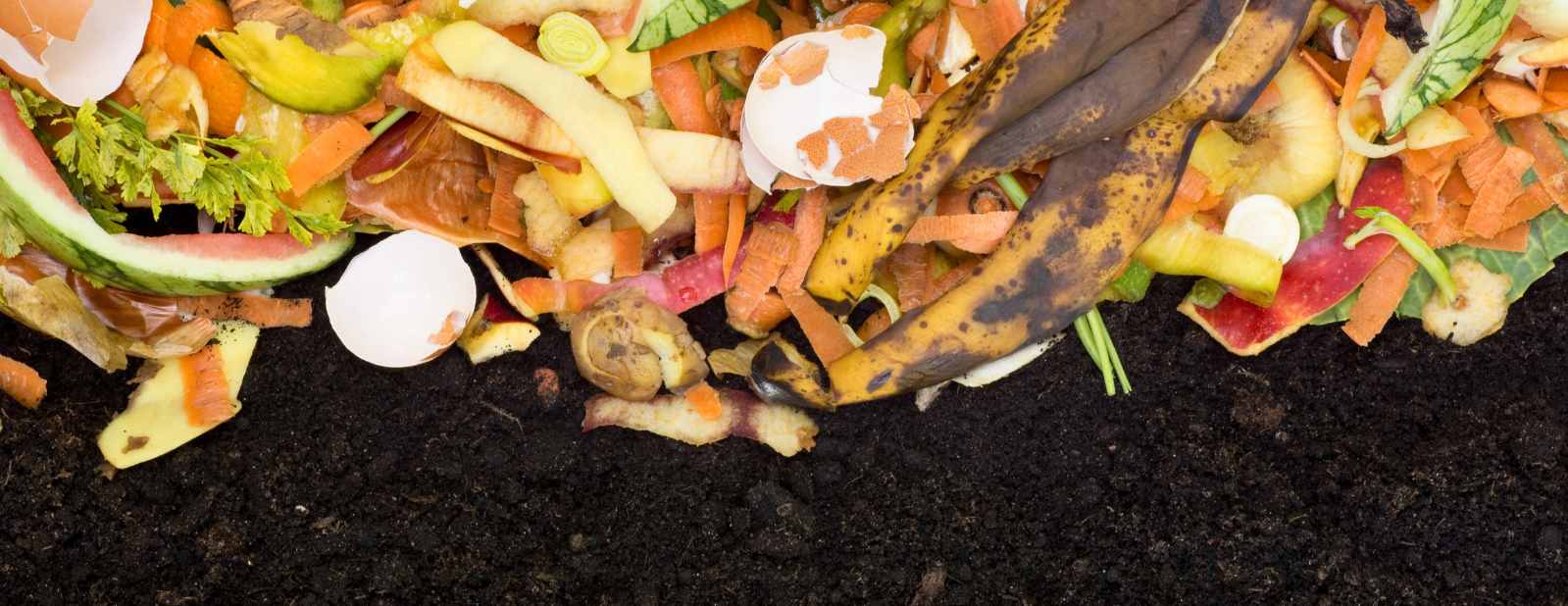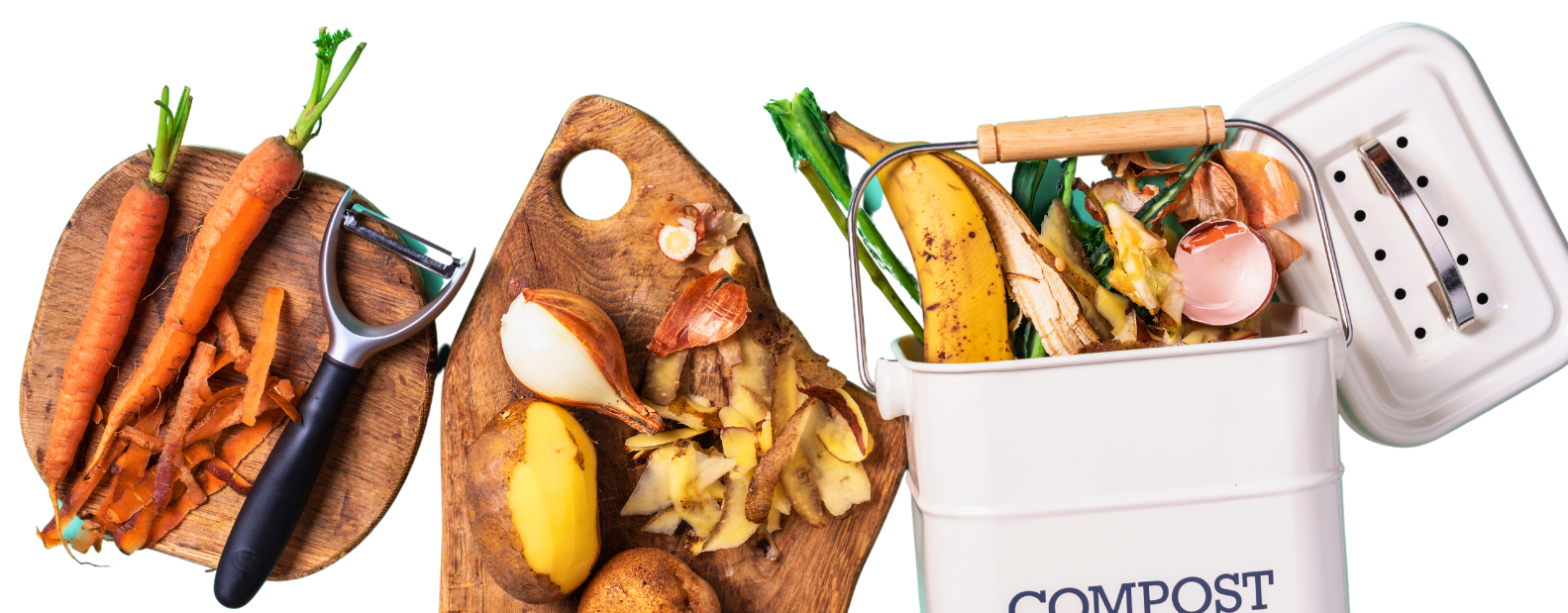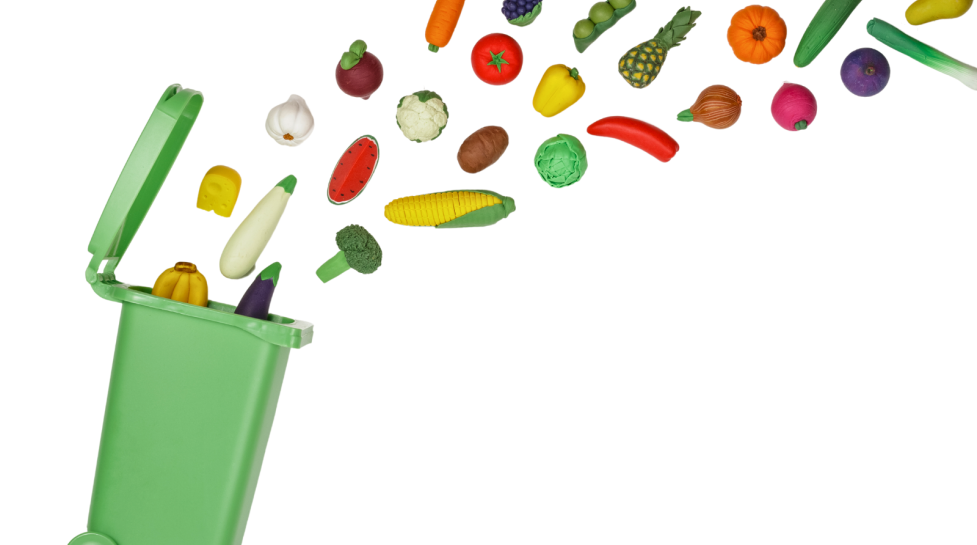Best practices to help you skip compostable bags.
Your compost bin is the first step in making healthy soil.
What goes in it turns into living soil and nutritious food through the composting process. High-quality compost increases our soil’s ability to absorb and hold water. It also promotes a diversity of soil life that store carbon. However, these benefits depend on a clean compost stream.

You can still use certain compostable bags.
Certain small, certified compostable bags are still allowed in your curbside compost bin. Please see A1 Organics’ website for a list of accepted certified compostable bags.

Why skip compost bags?
Compostable bags cost money, use natural resources and hide contamination.
There are also limits to the size and type of compostable bags you can compost. These new rules, set by compost manufacturer A1 Organics, help prevent plastic, glass and other contaminates from hiding in bags.
Here are some best practices to help you collect food scraps and yard trimmings without a bag:
- Use a kitchen countertop container with a lid. Choose a sturdy, washable container, such as a plastic pail, glass bowl or metal jar that can be easily cleaned. Using one with a lid will help keep odors inside the bin and prevent ants, fruit flies and other critters from getting in.
- Line your container with leaves. Dry leaves, grass clippings, banana peels, orange rinds and other dry scraps absorb moisture that would otherwise pool at the bottom of your bin. They also help prevent food scraps from sticking to the container, making it easier to empty and wash.
- Empty your indoor bin regularly. Consider emptying it every day or every other day in your curbside compost bin, depending on the amount of food waste created by your household. This helps prevent odors and fruit flies, keeps your kitchen tidy and your indoor container clean.
- Store your indoor bin in a cool place, away from the sun. This helps slow the breakdown of food scraps, which helps limit odors.
- Let your bin breathe. Make sure your countertop compost bin has holes or slots to allow air circulation. If your bin doesn't have built-in ventilation, consider drilling small holes in the container's lid or sides.
- Freeze or refrigerate food scraps. Store food scraps in the freezer or refrigerator to slow their breakdown and reduce smells. Use a separate container or resealable bag to hold the scraps before transferring them to your curbside bin. Make sure to keep plastic and large compostable bags out of your bin.
- Cooking pro tip: Save your vegetable scraps and bones in a separate container in the freezer. Once you have a stockpile of scraps, use them to make a homemade vegetable or bone broth. Compost the scraps after you strain the stock.
- Give your indoor bin a regular clean. If it gets stinky, give it a quick rinse without soap and pour the water directly onto your yard or trees. Help protect our waterways by not dumping water with food and soap residue into the street. Storm drains in our community lead directly to local creeks.
Help protect bears by keeping your curbside compost locked up.
The city's 2017 Bear Protection Ordinance 8161 aims to protect bears by eliminating access to food rewards found in trash and compost bins. The ordinance requires:
- Anywhere in the city: bear-resistant containers are required if trash and compost are put out the night before pickup.
- West of Broadway and south of Sumac Avenue: all compost and trash carts, containers, dumpsters or enclosures must be bear-resistant or stored in a building, house, garage, shed or other enclosure until emptied by a trash hauler.
-
View a downloadable map of the area where bear-resistant containers are mandatory at all times.
-
Don't have a bear-resistant compost container?
Contact your waste hauler for bear-resistant trash and compost containers if you don't have them.

Wait, what about lawn and leaf bags?
Many waste haulers are still collecting large, brown paper bags used for yard trimmings. These bags must be left next to your compost bin. Please check with your waste hauler for more information.
Large yard trimmings, like branches, can be taken to Western Disposal’s Yard Waste Drop-Off Center for a reduced fee.
Help keep our compost clean, become a sorting pro.
Check out our online article and Waste Sorting 101 web guide for local sorting guidelines and compost tips.
